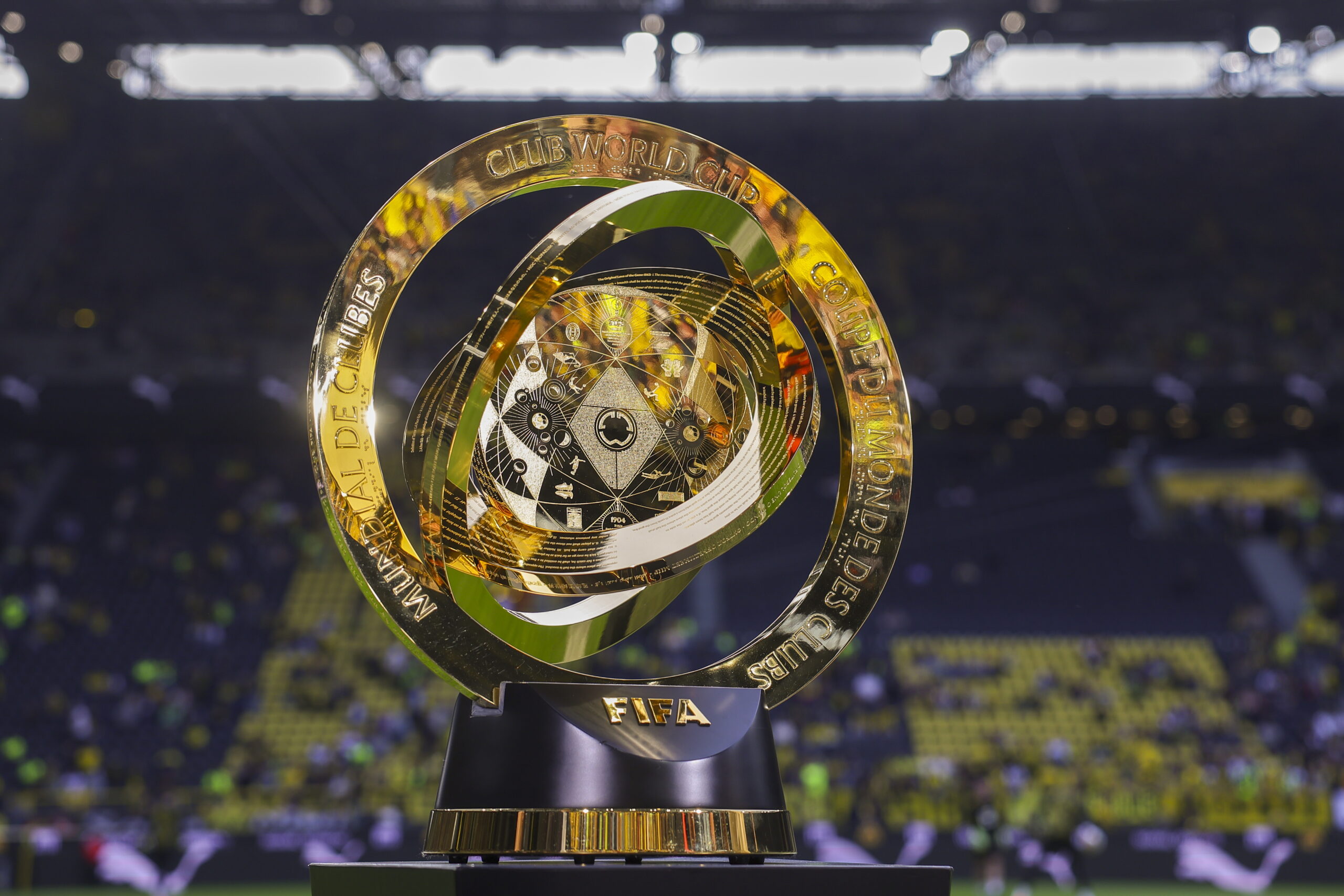The 2025 FIFA Club World Cup promises to be a showcase not only of elite club football, but also of a new generation of coaches stepping into high-pressure roles.
Several managers will be in the global spotlight, looking to assert themselves at new clubs or on bigger stages. Among them, Xabi Alonso, Simone Inzaghi, Christian Chivu, Jose Riveiro, and Mohamed Amine Benhachem stand out as tacticians to watch.
Xabi Alonso has taken over at Real Madrid following an impressive stint at Bayer Leverkusen, where he implemented a progressive, high-possession style with a strong press.
Known for his tactical clarity and calm demeanor, Alonso fits the Real Madrid ethos, combining modern football with a deep understanding of the club’s culture.
His major test will be managing egos and expectations in a results-driven environment.
If he maintains the balance between pragmatism and fluidity, Madrid could be serious contenders at the Club World Cup. Long-term, Alonso looks like a potential era-defining coach for Los Blancos.
Simone Inzaghi, who shockingly left Inter Milan for Al Hilal, arrives in Saudi Arabia with a strong reputation built on cup success and adaptable tactics.
He is a master of knockout competitions, proven by his Coppa Italia and Supercoppa triumphs. However, his challenge at Al Hilal lies in managing ageing stars alongside newer, high-profile foreign imports.
Inzaghi thrives in structured environments, and the Club World Cup will test whether he can impose his control and motivate a squad in transition.
His long-term future may hinge on continental dominance in the AFC Champions League, but his experience could bring short-term success.
At Inter Milan, former Romanian international Christian Chivu has been promoted from the youth set-up.
A strong tactician with a commitment to building from the back, Chivu is known for fostering discipline and promoting young talent.
However, this is his first major senior role, and the leap to managing a global powerhouse like Inter poses risks.
His team may be inconsistent early on, especially in a high-stakes environment like the Club World Cup, but if given time, Chivu’s long-term vision and familiarity with the club could be invaluable.
Jose Riveiro, now leading Al Ahly after success with Orlando Pirates, brings a detailed-oriented, pressing-based system.
His analytical approach helped him turn the Pirates into one of Africa’s most efficient sides, and now at Egypt’s most decorated club, expectations will be immense.
Riveiro’s strength lies in adaptability, but the weight of tradition and relentless demand for success at Al Ahly could be both a motivator and a burden.
A solid showing in the Club World Cup would cement his legitimacy, while long-term, he must maintain domestic dominance to survive.
Finally, Mohamed Amine Benhachem at Wydad Casablanca represents continuity and ambition.
Known for tactical discipline and player development, Benhachem is a student of Moroccan football with a modern edge.
Wydad, a consistent African powerhouse, will expect competitive performances, but squad depth may be a challenge.
His ability to foster cohesion and maximize local talent could surprise more resourced clubs at the tournament.
If he succeeds, Benhachem could become a cornerstone of Morocco’s managerial future.







After looking at a number of the blog posts on your website,
I honestly appreciate your tecchnique of writing a blog.
I saved as a favorite it to my bookmark website list and will be checking back
in the near future. Please check out my web site as well and let me know your opinion.
Votre guide parifoot rd congo: picks quotidiens, cotes comparees, tickets securises, gestion de mise, cash-out et promos. Depots via mobile money, retraits rapides, support francophone. LINAFOOT, CAF, ligues europeennes. Pariez avec moderation.
Цікавлять бонуси? казіно з бонусами: актуальні акції, подарунки за реєстрацію, депозитні та VIP-бонуси. Чесно розбираємо правила, допомагаємо зрозуміти вигоду та уникнути типових помилок під час гри.
Хочеш зазнати успіху? нові казино: свіжі огляди, рейтинг майданчиків, вітальні бонуси та фрізпіни, особливості слотів та лайв-ігор. Докладно розбираємо правила та нагадуємо, що грати варто лише на вільні кошти.
321chat down chat alternatives
казино з бонусами казіно з бонусами
ORBS Production https://filmproductioncortina.com is a full-service film, photo and video production company in Cortina d’Ampezzo and the Dolomites. We create commercials, branded content, sports and winter campaigns with local crew, alpine logistics, aerial/FPV filming and end-to-end production support across the Alps. Learn more at filmproductioncortina.com
Не https://mdgt.top знаех как да скрия кабелите в хола, но сайтът предложи отлична декорация
Ціни https://remontuem.if.ua на ремонт під ключ івано-франківськ ціна порівняв тут.
Знайшов https://seetheworld.top інформацію про інсбрук — усе зручно.
Независимый сюрвей в Москве: проверка грузов и объектов, детальные отчёты, фотофиксация и экспертные заключения. Прозрачная стоимость сюрвейерских услуг, официальные гарантии и быстрая выездная работа по столице и области.
ЦВЗ в Краснодаре https://cvzcentr.ru место, где пациентов внимательно выслушивают, проводят глубокую диагностику и составляют эффективный план улучшения состояния при вегетативных расстройствах.
Explore a true elephant sanctuary where welfare comes first. No chains or performances — only open landscapes, gentle care, rehabilitation programs and meaningful visitor experiences.
La infraestructura https://novo-sancti-petri.es y la tecnologia vial europeas equilibran la innovacion y la sostenibilidad. Semaforos inteligentes, carreteras verdes, centros de transporte seguros y proyectos que marcan la pauta para la industria global.
La Rome Espresso https://laromeespresso.es es un lugar donde la cultura del cafe se convierte en arte. Descubre el camino del grano a la taza: el sabor profundo, las tecnicas precisas y los rituales que crean la bebida perfecta.
Do you love excitement? roulettino casino login delights players with high-quality slots, live tables, tournaments, and ongoing promotions. The gameplay is smooth and dynamic.
Rodaballo al Horno https://rodaballoalhorno.es es un viaje a las raices musicales del mundo, donde los sabores de las culturas se entrelazan con sus melodias. Exploramos los ritmos de las naciones, los sonidos de las tradiciones y como diferentes historias se fusionan en un solo sonido armonioso.
Un portal sobre videojuegos https://tejadospontevedra.es, noticias y tendencias para quienes viven y respiran videojuegos: resenas, guias, parches, anuncios, analisis de tecnologia y torneos de esports. Todo para gamers y quienes quieran mantenerse informados.
Нужна легализация? закон о легализации в Черногории проводим аудит объекта, готовим документы, улаживаем вопросы с кадастром и муниципалитетом. Защищаем интересы клиента на каждом этапе.
Скрайд MMORPG https://сайт1.скрайд.рф культовая игра, где магия переплетается с технологией, а игрокам доступны уникальные классы, исторические миссии и масштабные PvP-сражения. Легенда, которую продолжают писать тысячи игроков.
Постоянно мучает насморк – средство от ринита
Бренд MAXI-TEX https://maxi-tex.ru завода ООО «НПТ Энергия» — профессиональное изготовление изделий из металла и металлобработка в Москве и области. Выполняем лазерную резку листа и труб, гильотинную резку и гибку, сварку MIG/MAG, TIG и ручную дуговую, отбортовку, фланцевание, вальцовку. Производим сборочные единицы и оборудование по вашим чертежам.
Эвакуатор в Москве https://eva77.ru вызов в любое время дня и ночи. Быстрая подача, профессиональная погрузка и доставка авто в сервис, гараж или на парковку. Надёжно, безопасно и по фиксированной цене.
1win сколько 1win официальный сайт сегодня
Хочешь развлечься? купить альфа пвп федерация – это проводник в мир покупки запрещенных товаров, можно купить гашиш, купить мефедрон, купить кокаин, купить меф, купить экстази, купить альфа пвп, купить гаш в различных городах. Москва, Санкт-Петербург, Краснодар, Владивосток, Красноярск, Норильск, Екатеринбург, Мск, СПБ, Хабаровск, Новосибирск, Казань и еще 100+ городов.
казино з бонусами казіно з бонусами
Файне Хмельницкий https://faine-misto.km.ua події та новини Хмельницького, огляди, статті.
У Куми https://u-kumy.com жіночий сайт з порадами на всі випадки життя. Мода, краса, діти, стосунки, сонник та смачні рецепти.
Компания Таврнеруд https://tareksa.ru производство и продажа нерудных материалов, сервис логистических услуг, а также проектирование в области технологии обогащения нерудных материалов, проведение лабораторных испытаний нерудных материалов.
Do you love puzzles? This free puzzle games game features challenging levels, well-thought-out mechanics, and relaxing gameplay. Solve riddles, unlock new levels, and test your problem-solving skills anytime, anywhere.
Нужен сайт? разработка портала на битрикс включает проектирование, удобный интерфейс, быструю загрузку, интеграцию с 1С и CRM. Подбираем решения под задачи бизнеса и обеспечиваем техническое сопровождение.
Нужен сервер? здесь лучшие по мощности и стабильности. Подходят для AI-моделей, рендеринга, CFD-симуляций и аналитики. Гибкая конфигурация, надежное охлаждение и поддержка нескольких видеокарт.
найкращі слоти слоти онлайн
ігри в казино ігри казино
mostbet global mostbet
слоти онлайн слоти ігрові автомати
Познавательный блог Нотатки https://notatky.net.ua объясняет сложные вещи простым языком. Интересные факты, история, биографии, наука и много интересного.
bonus mostbet mostbet
новости беларуси на сегодня 2025 зеркало новости беларусь
самые последние новости беларусь новости беларуси
Visit an https://caucasustravel.ru to see elephants living in natural landscapes, receiving care, rehabilitation and freedom from exploitation. Ethical tours focus on education, conservation and respectful observation.
Experience an elephant sanctuary where welfare comes first. Walk alongside elephants, watch them bathe, feed them responsibly and discover how conservation efforts help protect these majestic animals.
An ethical https://mark-travel.ru provides rescued elephants with medical care, natural habitats and social groups. Visitors contribute to conservation by learning, observing and supporting sustainable wildlife programs.
Бренд MAXI-TEX https://maxi-tex.ru завода ООО «НПТ Энергия» — это металлообработка полного цикла с гарантией качества и соблюдением сроков. Выполняем лазерную резку листа и труб, гильотинную резку и гибку, сварку MIG/MAG, TIG и ручную дуговую, отбортовку, фланцевание, вальцовку, а также изготовление сборочных единиц и оборудования по вашим чертежам.
Нужен сервер? http://karafelov.ru/ лучшие по мощности и стабильности. Подходят для AI-моделей, рендеринга, CFD-симуляций и аналитики. Гибкая конфигурация, надежное охлаждение и поддержка нескольких видеокарт.
Регулярно мучает насморк – Серебряный Углерон купить
Изготавливаем каркас лестницы из металла на современном немецком оборудовании — по цене стандартных решений. Качество, точность реза и долговечность без переплаты.
Latest about all things crypto: price rises and falls, network updates, listings, regulations, trend analysis, and industry insights. Follow market movements in real time.
The latest about all things crypto: Bitcoin, altcoins, NFTs, DeFi, blockchain developments, exchange reports, and new technologies. Fast, clear, and without unnecessary noise—everything that impacts the market.
Купить шпон https://opus2003.ru в Москве прямо от производителя: широкий выбор пород, стабильная толщина, идеальная геометрия и высокое качество обработки. Мы производим шпон для мебели, отделки, дизайна интерьеров и промышленного применения.
нарколог вывод из запоя https://alcodetox-med.ru
вывод из запоя врачи https://narkonet.su
вывод из запоя круглосуточно экстренный вывод из запоя на дому
Доставка грузов https://china-star.ru из Китая под ключ: авиа, авто, море и ЖД. Консолидация, проверка товара, растаможка, страхование и полный контроль транспортировки. Быстро, надёжно и по прозрачной стоимости.
Доставка грузов https://lchina.ru из Китая в Россию под ключ: море, авто, ЖД. Быстрый расчёт стоимости, страхование, помощь с таможней и документами. Работаем с любыми объёмами и направлениями, соблюдаем сроки и бережём груз.
Гастродача «Вселуг» https://gastrodachavselug1.ru фермерские продукты с доставкой до двери в Москве и Подмосковье. Натуральное мясо, молоко, сыры, сезонные овощи и домашние заготовки прямо с фермы. Закажите онлайн и получите вкус деревни без лишних хлопот.
Логистика из Китая https://asiafast.ru без головной боли: доставка грузов морем, авто и ЖД, консолидация на складе, переупаковка, маркировка, таможенное оформление. Предлагаем выгодные тарифы и гарантируем сохранность вашего товара.
Независимый сюрвейер https://gpcdoerfer1.com в Москве: экспертиза грузов, инспекция контейнеров, фото- и видеопротокол, контроль упаковки и погрузки. Работаем оперативно, предоставляем подробный отчёт и подтверждаем качество на каждом этапе.
Файне місто Дніпро https://faine-misto.dp.ua новини та події Дніпра та області. Огляди, транспорт, події та цікаве.
У Кума https://u-kuma.com блог для чоловіків про армію, авто, ремонт та життя. Корисні поради на всі випадки життя.